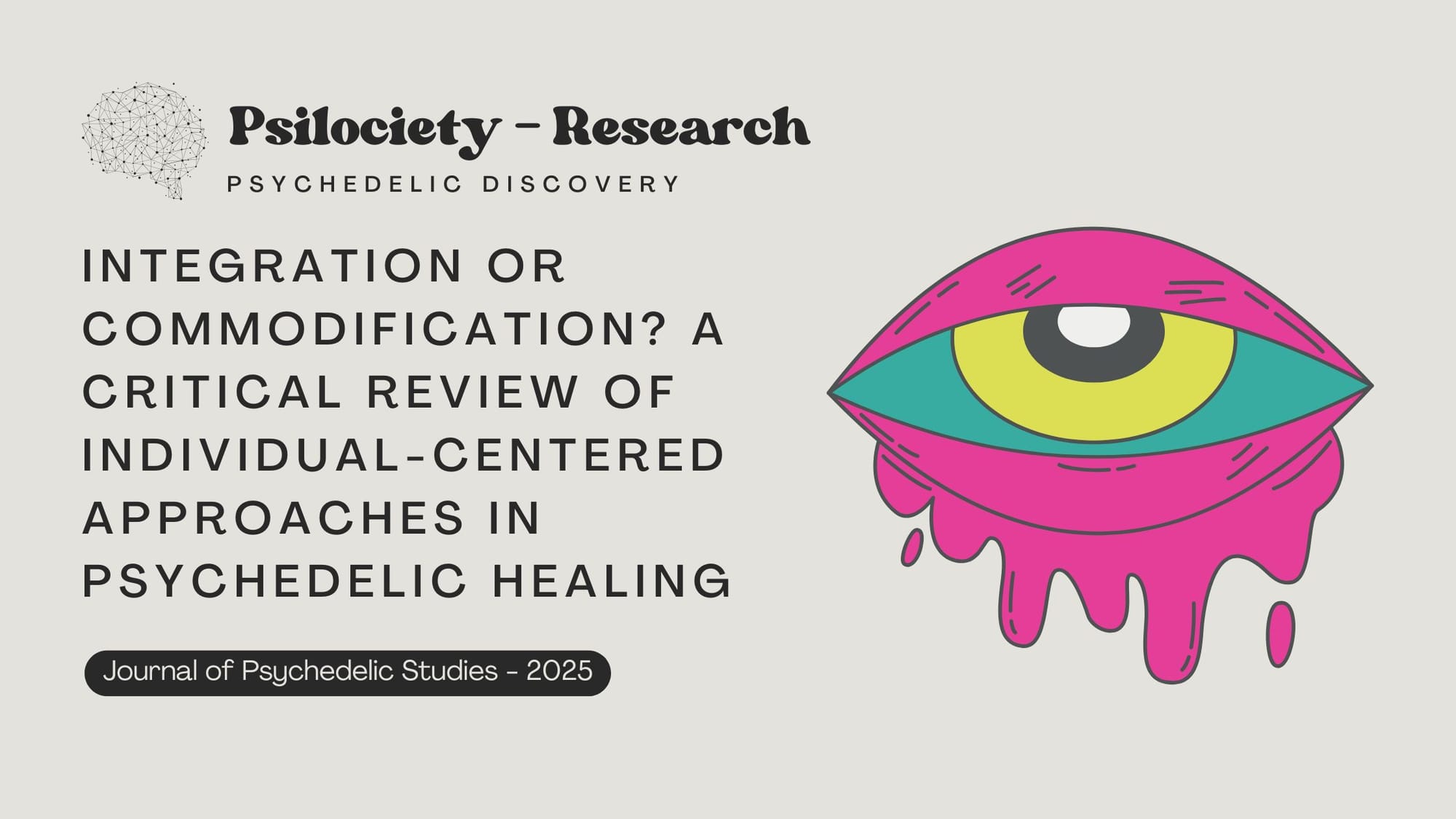Integration or Commodification? A Critical Review of Individual-Centered Approaches in Psychedelic Healing
This study examines how psychedelic integration practices risk becoming formulaic and commercialized, limiting their transformative potential.

Title & Introduction
- Paper Title: Integration or Commodification? A Critical Review of Individual-Centered Approaches in Psychedelic Healing
- Published In: Journal of Psychedelic Studies
- Publish date: February 26, 2025
- Authors: Emilia Sanabria, Luís Fernando Tófoli
- Objective: To critically examine the concept of psychedelic integration and its evolution within contemporary psychedelic therapy, questioning whether current integration practices prioritize individual healing at the expense of broader societal factors.
- Importance: Highlights concerns about the commodification of psychedelic healing and how formulaic integration approaches may limit the transformative potential of psychedelics.
Summary & Takeaways
Key Takeaway: The study argues that psychedelic integration is increasingly becoming a commercialized, individualized service rather than a dynamic, context-dependent practice that considers social and cultural factors.
Practical Application:
Encourages psychedelic therapists and researchers to critically evaluate the assumptions behind integration models and advocate for more holistic, context-aware approaches.
Key Background Information
- Context: Psychedelic therapy is gaining mainstream attention, but concerns arise about how integration is framed—either as a meaningful therapeutic process or as a standardized service detached from social realities.
- Hypothesis: Integration practices risk becoming overly formulaic and commercialized, diminishing their transformative potential and failing to account for the broader societal conditions that contribute to psychological distress.
Methodology
- Study Design: Critical literature review and genealogical analysis.
- Participants: Not applicable.
- Intervention/Exposure: Examination of integration models in psychedelic therapy.
- Controls: Not applicable.
- Duration: Review of historical and contemporary literature on psychedelic integration.
Key Findings
Primary Outcomes:
- Integration practices increasingly focus on individual-centered models, often neglecting social determinants of mental health.
- The emergence of checklists and formulaic approaches to integration may limit the depth of psychedelic healing.
- Integration services are becoming commodified, raising concerns about accessibility and equity.
- There is a divergence between Indigenous/traditional psychedelic practices and Western therapeutic models.
Secondary Outcomes:
- Digital psychedelia and app-based integration practices may further disconnect integration from its deeper therapeutic roots.
- A viewpoint from the Global South suggests that prevailing Western approaches to psychedelic therapy may be biased toward individualism and technological solutions.
Interpretation & Implications
- Conclusion: The study calls for a re-evaluation of psychedelic integration practices, advocating for a more open-ended, contextually aware approach that does not merely serve commercial interests.
- Implications: Therapists and policymakers should consider integration beyond the individual level, addressing social and cultural dimensions of healing.
- Limitations: The study is largely theoretical and does not present empirical data on patient outcomes.
Researchers & Publication
- Researchers: Emilia Sanabria, Luís Fernando Tófoli
- Publication Name: Journal of Psychedelic Studies
- Study URL: https://doi.org/10.1556/2054.2024.00411

